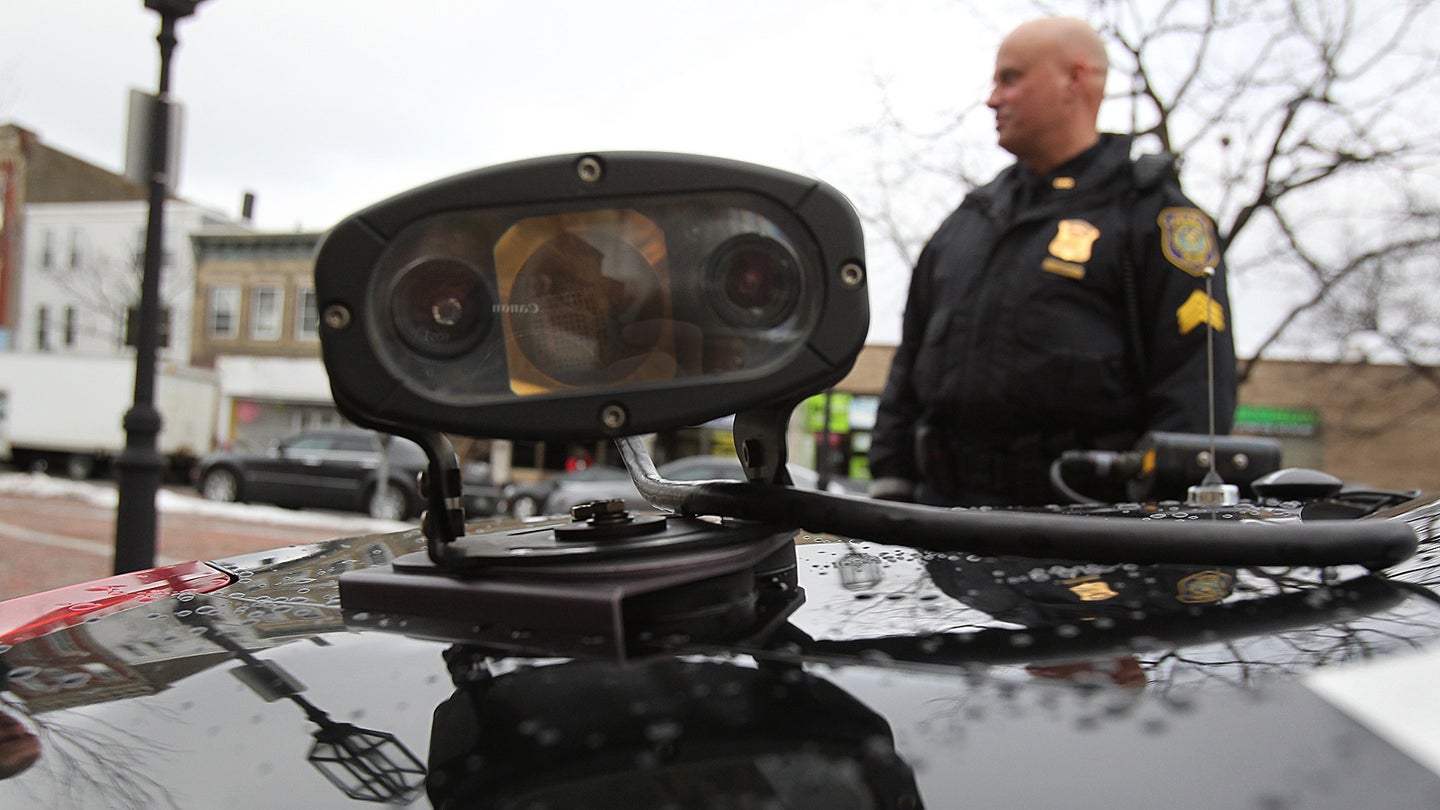California Supreme Court Deems Automatic License Plate Data To Be Public Records
The state’s exemption that allows law enforcement to keep certain records secret does not apply to license plate data.

The American Civil Liberties Union of Southern California and Electronic Frontier Foundation won a lawsuit Thursday that will require the Los Angeles Police Department and Los Angeles County Sheriff's Department to fulfill their request for one week's worth of data from their automatic license plate readers (ALPR). This overturns a Superior Court decision that said these public records are protected as records of law enforcement investigations.
ALPRs have become more and more common over the past several years. Many toll roads, such as the Massachusetts Turnpike, have abolished traditional toll booths and now use ALPRs to charge drivers who do not have an EZ-Pass. Many police cruisers have also been fitted with ALPR equipment, which automatically alerts the officer if a plate associated with a violation is scanned.
This has raised numerous concerns about the privacy of the data collected by these devices. The vast majority of plates scanned are legal, and their owners have violated no law of any kind. Yet this stockpile of license plate data can tell where someone is on a particular day and time and can be used to piece together an individual's travel patterns.
As is all too common these days, technology has advanced far more quickly than the laws governing it, which means that in many places there are no laws or restrictions on the collection or use of license plate data. While some police departments, such as Boston, Massachusetts, discontinued ALPR use due to privacy concerns, others, such as the departments cited in this lawsuit, have taken the opposite view that the data is theirs and theirs alone to do with as they please. The LAPD and LASD claimed that license plate data qualifies as investigative records, which the law allows them to keep secret. But because virtually all owners of the license plates in the database have committed no crime and are not under active investigation, the California Supreme Court rejected this claim, declaring the records to be public.
It may seem backward that the ACLU and EFF, two organizations dedicated to defending individual rights and privacy, would be the catalyst for a decision like this. But having exposed the massive threat to privacy that these records entail, it is now incumbent on the state legislature to enact new laws to place limits on the extent of data these records can contain and how long they can be kept. The Supreme Court recognizes this concern as well and has sent this case back to trial court to determine a way to make the information the ACLU and EFF requested public while protecting the identities of the drivers.
